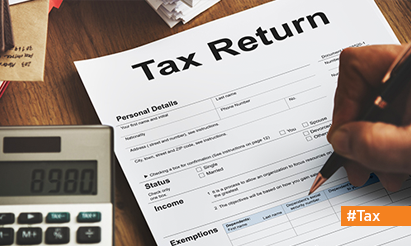Understanding Rental Income Taxation and Allowable Deductions
In India, the taxation of rental income is a topic that often confuses landlords and property owners. Given the variety of rules and the recent legal changes, understanding how rental income is taxed under the Indian Income Tax Act is crucial for anyone involved in leasing property. This
blog explores the calculation of income tax on rental income, applicable deductions, recent legal rulings, and practical advice for property owners.
How is Rental Income Taxed?
Rental income in India is taxed under the head ‘Income from house property’. This includes any rent received from residential or commercial properties, as well as from land appurtenant to a building. However, it’s important to note that if the property is used by the owner for business or
professional purposes, it does not fall under this category.
Calculation of Taxable Rental Income
The annual value of a property is the basis for taxation and is determined by the higher of:
● The actual rent received for the property.
● The expected rent, which is the amount the property could reasonably be expected to fetch on the open market.
● From this annual value, property owners can deduct municipal taxes paid during the year. Post these deductions, what remains is considered the ‘Net Annual Value’.

Standard Deduction and Other Deductions
Property owners are entitled to a standard deduction of 30% of the net annual value for repairs, maintenance, and collection charges, irrespective of the actual expenditure. This deduction is a significant relief as it does not require the landlord to maintain detailed accounts of expenses. In addition to the standard deduction, landlords can also deduct the amount of interest on any loan taken for the purchase, construction, or renovation of the property. This makes investing in rental properties a more attractive proposition, particularly when financed through loans.

Special Considerations and Legal Rulings
Unrealized Rent: As per a recent ruling by the Income Tax Appellate Tribunal (ITAT), landlords are not liable to pay tax on unrealized rent. This decision is particularly relevant in times of economic downturn, where tenants may default on rent. Charitable Trusts: In a decision by the Delhi branch of ITAT, charitable trusts were found ineligible for the standard deduction on rental income since these entities typically claim capital expenditures at the time of property acquisition.
Rental Income from REITs: For those investing in Real Estate Investment Trusts (REITs), the structure is slightly different. Approximately 90% of taxable income from REITs must be
distributed to investors, who then enjoy tax exemptions on this income.
Transit Rent Not Taxable: In a landmark judgment, the Bombay High Court ruled that transit rent received from a real estate developer during a redevelopment project is not taxable. This rent is considered a capital receipt rather than a revenue receipt, thus not subject to TDS (tax
deducted at source).
Tax-Free Rental Income
The amount of tax-free rental income largely depends on the deductions and allowances claimed by the property owner. With no upper limit on the interest that can be deducted against rental income, significant tax relief can be achieved, particularly when the property is financed with a
substantial mortgage.
Practical Advice for Landlords
Landlords should ensure they :
● Maintain proper documentation for all rental agreements and receipts.
● Keep detailed records of all expenses related to the property, including repairs, maintenance, and improvements.
● File income tax returns timely and accurately, declaring rental income under the correct heads.
● Understand the implications of recent court rulings and changes in tax laws that may affect the taxation of rental income.
Conclusion : Understanding the taxation of rental income in India requires a thorough grasp of the various provisions under the Income Tax Act. Recent court rulings and legislative changes have also played a significant role in shaping the tax landscape for rental incomes. By staying informed and compliant, landlords can not only ensure they meet their legal obligations but also optimize their tax liabilities.
Disclaimer: The views expressed above are for informational purposes only based on industry reports and related news stories. Property Pistol does not guarantee the accuracy, completeness, or reliability of the information and shall not be held responsible for any action taken based on the published information.




